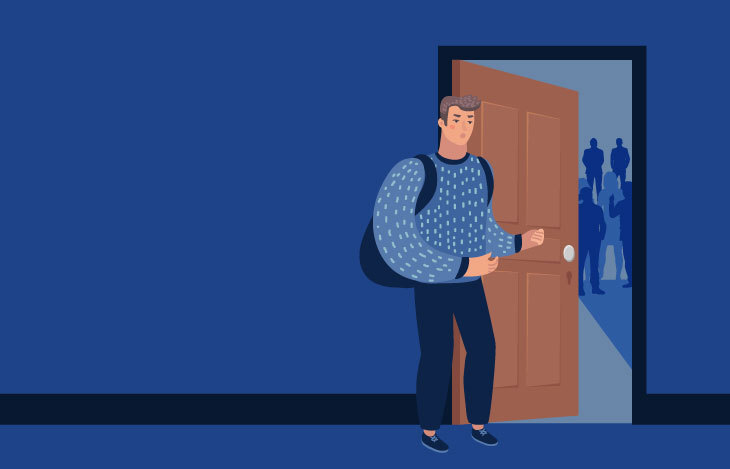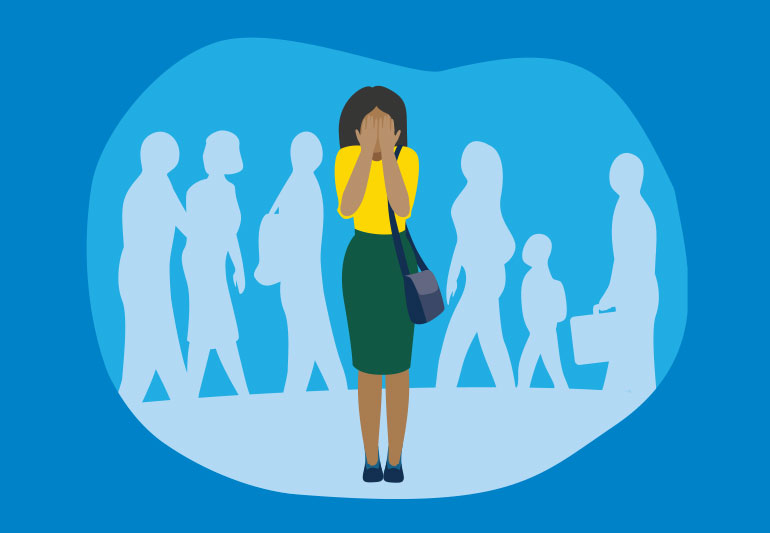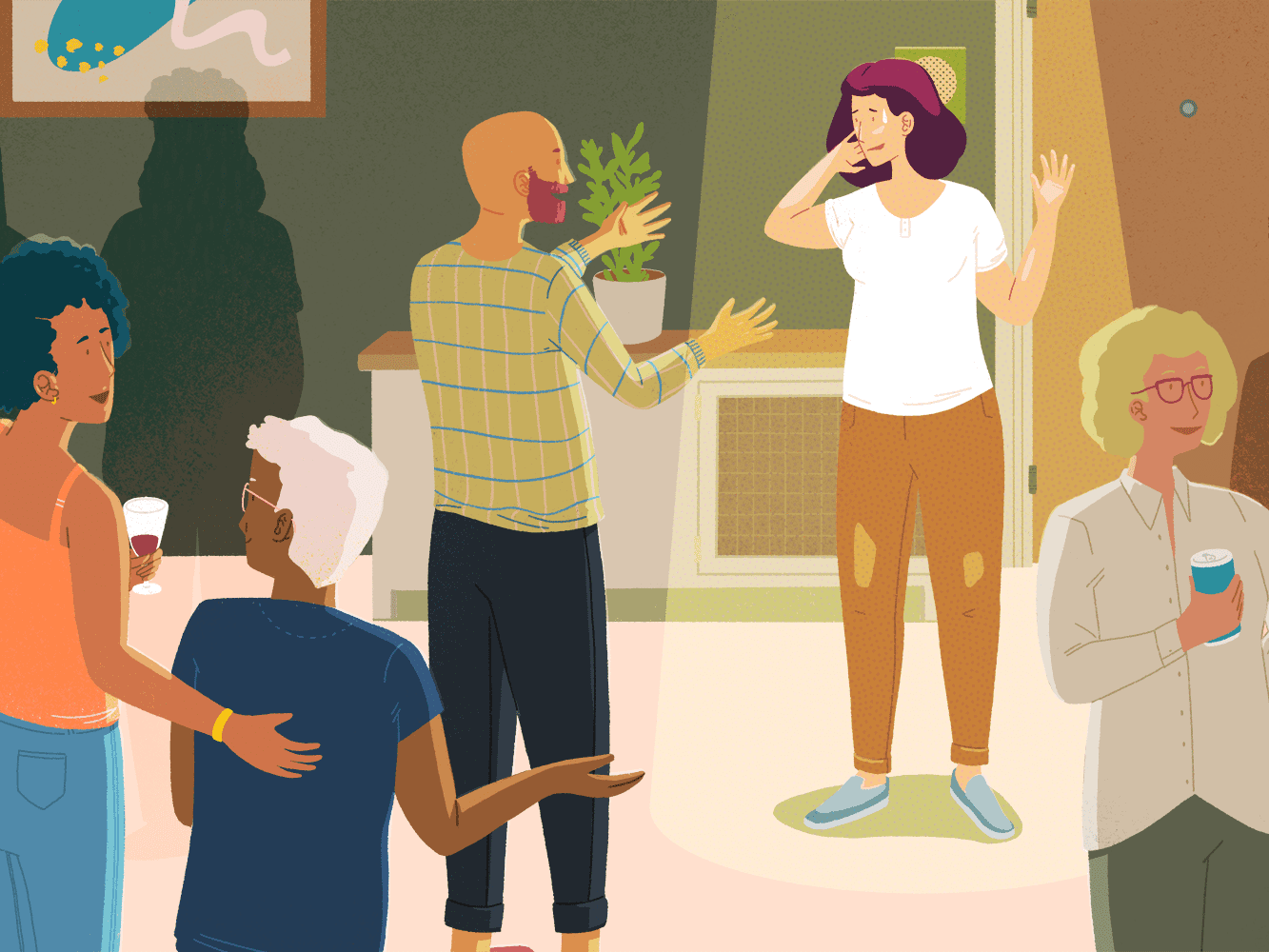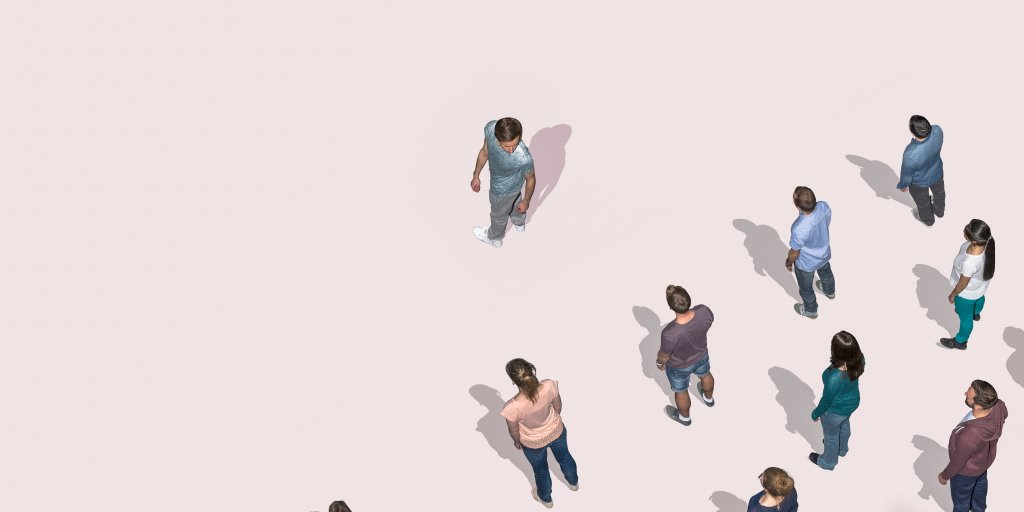Do you sometimes feel like you’re the only one who doesn’t know what to say in social situations? You’re not alone. Social awkwardness is a common problem for many people. In this blog post, we will discuss the causes of social awkwardness and ways to overcome it. We will also discuss how social awkwardness can affect your life and how to deal with it.
Contents
What Is Social Awkwardness?
 Social awkwardness is a feeling of anxiety or diffidence in social situations. It can manifest itself as general discomfort or shyness around others, or specific fears such as public speaking. Social awkwardness is different from introversion, which is a preference for solitary activities.
Social awkwardness is a feeling of anxiety or diffidence in social situations. It can manifest itself as general discomfort or shyness around others, or specific fears such as public speaking. Social awkwardness is different from introversion, which is a preference for solitary activities.
People who are socially awkward may find it hard to make friends and to fit in with people their own age. They may feel uncomfortable talking about themselves, and they may not know how to react when someone compliments them. Often, they will blush, stammer, or laugh nervously when they don’t know what to say.
Signs of Social Awkwardness

There are many signs of social awkwardness such as:
Isolation
Isolation is one of the biggest signs of social awkwardness. People who are socially awkward will often avoid interacting with others, preferring to stay alone or in small groups.
Inability To Handle Social Situations
People who are socially awkward find it difficult to handle social situations. They may feel anxious and uncomfortable around other people, and they may not know what to say or do. This can lead to them making mistakes or embarrassing themselves.
Poor Communication Skills
People who are socially awkward often have poor communication skills. They may find it hard to start conversations, and they may not be able to keep a conversation going for very long. They may also have difficulty understanding what others are saying, which can make them come across as unintelligent or uninterested.
Nervousness
People who are socially awkward often feel very nervous in social situations. They may have difficulty making eye contact with others, or they may fidget and talk too fast when they’re speaking to someone. This can make them seem strange or unprofessional.
Lack Of Confidence
People who are socially awkward tend to lack confidence, which makes it difficult for them to interact with other people. They may be shy around large groups of people and find it hard to speak up when necessary because they don’t want anyone paying attention to them. Poor self-esteem is also a common symptom of a social anxiety disorder (SAD). People with SAD will avoid doing things that might make them look bad such as talking in public or going out on dates.
Causes of Social Awkwardness

There are many causes of social awkwardness. Some of these are:
Trauma
Trauma is a common cause of social awkwardness. People who have experienced trauma often feel unsafe in social situations and will avoid them as much as possible. This can lead to isolation, which is one of the biggest signs of social awkwardness.
Depression
People who are depressed may find it difficult to interact with other people because they’re too busy worrying about their own problems or self-esteem issues. They may also lack confidence due to low self-esteem caused by depression, which makes it hard for them to talk about themselves without feeling like they’re being judged by others. Depression can also cause feelings of hopelessness and despair that make someone less likely to want to interact with other people.
Anxiety
People who are socially awkward may also suffer from anxiety, which makes it hard for them to handle social situations and can lead to isolation as well. It’s common for someone suffering from an anxiety disorder like generalized anxiety disorder (GAD) or panic attacks due to a traumatic event in their lives such as sexual assault or childhood abuse. Sometimes, people who experience PTSD will avoid situations that remind them of the traumatic event in order to prevent further anxiety attacks.
Low Self-Esteem
People with low self-esteem may feel like they’re not good enough or don’t deserve to be happy, so they isolate themselves from other people which can lead to social awkwardness. They may also lack confidence due to their low opinion of themselves, which makes it hard for them to talk about themselves without feeling judged by others around them.
Positive Impacts of Social Awkwardness

There are many positive impacts of social awkwardness as well. Some of these are:
Makes You More Interesting
Sometimes there are things that you do or say which make other people think of you in a different way. These are the things that make you more interesting among your friends and family members.
If you notice these, then it’s a good thing because this is part of being an individual and unique person.
Makes You More Creative And Productive
A person who is socially awkward has a lot of time to think about their surroundings and what they can do in order to become more productive. This makes them more creative as well because they are thinking all the time of ways on how to improve themselves or their situation.
Makes You Unique And Original
One reason why people like you is that there’s nothing else like you out there! If everyone was exactly alike then it would be boring for everyone around us because we wouldn’t stand out at all from one another. Being different means standing apart from other people so if someone compliments your uniqueness or originality, take it with pride!
Negative Impacts of Social Awkwardness

There are many negative impacts of social awkwardness as well. Some of these are:
Makes It Hard To Make Friends
People who are socially awkward often find it difficult to make friends. This is because they don’t know how to start conversations or keep them going for very long. They may also be shy around people they don’t know, which makes it hard for them to form relationships with others.
Leads To Isolation
Social awkwardness can lead to isolation, which is when someone doesn’t have any social connections outside of their family and close friends. People who are isolated tend to be more depressed and anxious than those who have a strong social support system, and they’re more likely to suffer from mental health problems like depression and anxiety disorders.
Can Lead To Mental Health Problems
People who are socially awkward are more likely to suffer from mental health problems like depression, anxiety disorders such as generalized anxiety disorder (GAD), or panic attacks due to a traumatic event in their lives. Sometimes people who experience PTSD will avoid situations that remind them of the traumatic event in order to prevent further anxiety attacks.
Lower Self-Esteem
People with low self-esteem may feel like they’re not good enough or don’t deserve to be happy, so they isolate themselves from other people which can lead to social awkwardness. They may also lack confidence due to their low opinion of themselves, which makes it hard for them to talk about themselves without feeling judged by others around them.
Dealing With Social Awkwardness

There are many ways to deal with social awkwardness. Some of these are:
Accept It And Embrace It
The first thing you need to do is accept that you are socially awkward and embrace it. Don’t be ashamed or embarrassed by it because there are many people out there who are just like you.
Start Practicing Social Situations
The next step is to start practicing social situations so that you will become more comfortable in them. This can be done by joining a club, going to meetups, or even talking to strangers online.
Get Professional Help
If the problem is really severe then it might be best to get professional help from a therapist or counselor. They will be able to help you understand your social awkwardness and give you advice on how to deal with it.
Talk To Someone You Trust
If you feel like talking about your social awkwardness, then talk to someone that you trust and who will listen without judgment or criticism. This can be a family member, friend, teacher at school, or even an online forum where people have similar issues as yourself.
Write It Down
Another option would be writing down everything in a journal or blog post so that others might see what’s going on inside your head without having any contact with them personally (which could lead to further problems). This can be a great way for you to release your thoughts and feelings without any fear of judgment.
Helping Someone With Social Awkwardness

When you want to help someone with social awkwardness, there are many ways through which you can help them.
Listen To Them Without Judgment
You can always listen to them without judgment and help them feel comfortable opening up to you about their feelings. This can be done by not interrupting them, keeping an open mind, and showing genuine interest in what they have to say.
Encourage Them To Talk More
Another way to help someone with social awkwardness is to encourage them to talk more. You can do this by asking them questions about themselves or the topic of conversation. This will make them feel more at ease and willing to participate in future conversations.
Introduce Them To New People And Situations
The best way to help someone with social awkwardness is to introduce new people and situations. If they are feeling uncomfortable then it might be because they are not used to being around a lot of people or in new environments. Help them ease into these situations by being there for support and guidance.
Teach Them Social Skills
If you are feeling up to it, then you can also teach them social skills. This can be done by giving them advice on how to act in certain social situations, what to say, and how to react. Remember that everyone learns differently so some people might need more help than others when it comes to learning social skills.
Conclusion
Social awkwardness is something that we all feel at times, and it is completely normal to be socially awkward. It’s difficult for most people to make friends or even have a conversation with someone they don’t know.
Sometimes social awkwardness is just a passing phase that you’ll eventually grow out of. It could be as simple as making yourself more comfortable in social situations, or it could mean that you need some help from someone else.
A Word From Therapy Mantra
Your mental health — Your psychological, emotional, and social well-being — has an impact on every aspect of your life. Positive mental health essentially allows you to effectively deal with life’s everyday challenges.
At TherapyMantra, we have a team of therapists who provide affordable online therapy to assist you with issues such as depression, anxiety, stress, workplace Issues, addiction, relationship, OCD, LGBTQ, and PTSD. You can book a free therapy or download our free Android or iOS app.


